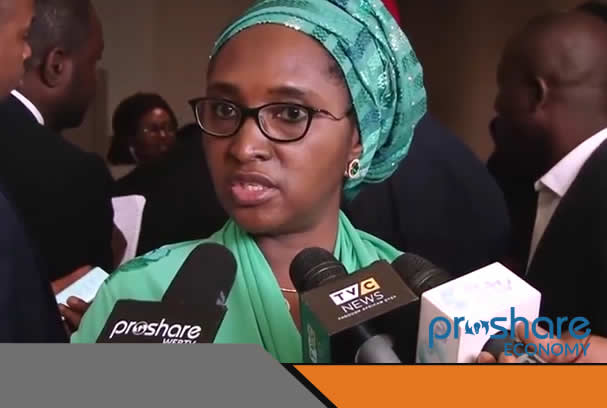The Federal Government yesterday made good its threat to stop the salaries of all its workers, especially members of the Academic Staff Union of Universities (ASUU), who are not featured on the Integrated Payroll and Personnel Information System (IPPIS).
President Muhammadu Buhari had while presenting the 2020 budget proposal to the National Assembly, declared: “I have directed the stoppage of the salary of any Federal Government staff (sic) that is not captured on the Integrated Payroll and Personnel Information System (IPPIS) platform by the end of October 2019.”
With the development, the affected workers would not only fail to receive their salaries this month and the next, but they also face the prospect of a cash-strapped Christmas celebration.
Following Tuesday’s National Economic Council meeting at the Presidential Villa, Abuja, Minister of Finance, Budget and National Planning, Zainab Ahmed, had told reporters: “It is a pity if ASUU carries out this strike because what ASUU is saying now is that they should be treated differently from other staff of the government of Nigeria who is also on IPPIS. We will be engaging ASUU. We will be discussing it with them. But at the end of the day, as far as I am concerned, my instruction is from the president.”
Efforts to speak with Zainab and the Accountant General of the Federation, Ahmed Idris, whose office oversees the IPPIS, were unsuccessful as they were reportedly involved in a marathon meeting on the matter.
A top functionary of the ministry, however, told The Guardian: “There is no going back on the decision to cut off all MDAs, ASUU inclusive. There is no sparing anyone because this is a policy of government. There is nothing such as shifting grounds on this matter. The action has now been affected, in line with the order of the president.”
The official, who asked not to be named, said further: “If there is going to be a review tomorrow, I don’t know. But for now, that is the resolution. The minister and all the relevant officials have met on this and have effected the cut-off.”
The official condemned the penchant of ASUU members for receiving several salaries monthly from different institutions. This, he said, was the basis of their objection to IPPIS, which according to him is designed to stop the practice.
He said it was annoying that a section of the workforce would attempt to sabotage a system that has helped to stem corruption in the public service.
ASUU, meanwhile, suspended its planned strike yesterday, with its president, Biodun Ogunyemi, disclosing that the union had come up with an alternative pay system for its members. According to him, the proposal would be university-based and could be easily monitored by governing councils.
Contrary to claims that the union is against IPPIS because it wants to perpetuate corruption, Ogunyemi said: “It is easier to control corruption at the lower level than at the centre. Given the mechanism we have in place, the laws governing the universities have said where the governing council is not performing, dissolve it and set up another one. Government is shying away from that because they are politicising appointments into the councils and would not want to offend their friends.
“The details of the proposal are being worked out by our team of experts. We are concerned about probity, transparency, and accountability as any other person in this country because we have no other job than working in the system. Let nobody say ASUU’s opposition to IPPIS is an endorsement of corruption. That is cheap blackmail and cannot stand.”
He said further: “We met with the Senate leadership, and the lawmakers have given us a challenge. From our discussion, we believe that they are willing to listen to us and we also believe that through the National Assembly, our voice would be heard that we are not against the war against corruption. We are fully in support, but IPPIS cannot guarantee the war against corruption.”
He added: “IPPIS is so carelessly handled that those who are already on it are suffering in silence. We have our colleagues who are consulting for teaching hospitals, who told us what they have been suffering. Salaries have been inconsistently paid. They have to leave their stations for Abuja to rectify the problem. There are cases where they could travel for five or six times, paying for their transportation to Abuja, to correct an error in their salaries. Are we going to subject scholars from all parts of the world to that kind of arrangement?
“The mandate of a university is research. To do good research, there must be an enabling environment, which includes international comparison. I challenge the government to tell us any country in the world where the payment of lecturers are centralised. Is it in the United States, South Africa, United Kingdom, and Australia?
“Nigerian government should stop domesticating us at a time we should be internationalising. When people say ASUU is endorsing corruption by rejecting IPPIS, it is because they don’t know what universities are established to do. Universities are supposed to be at the cutting edge of dynamism. IPPIS would not just slow us down; it would reverse our ranking.”



